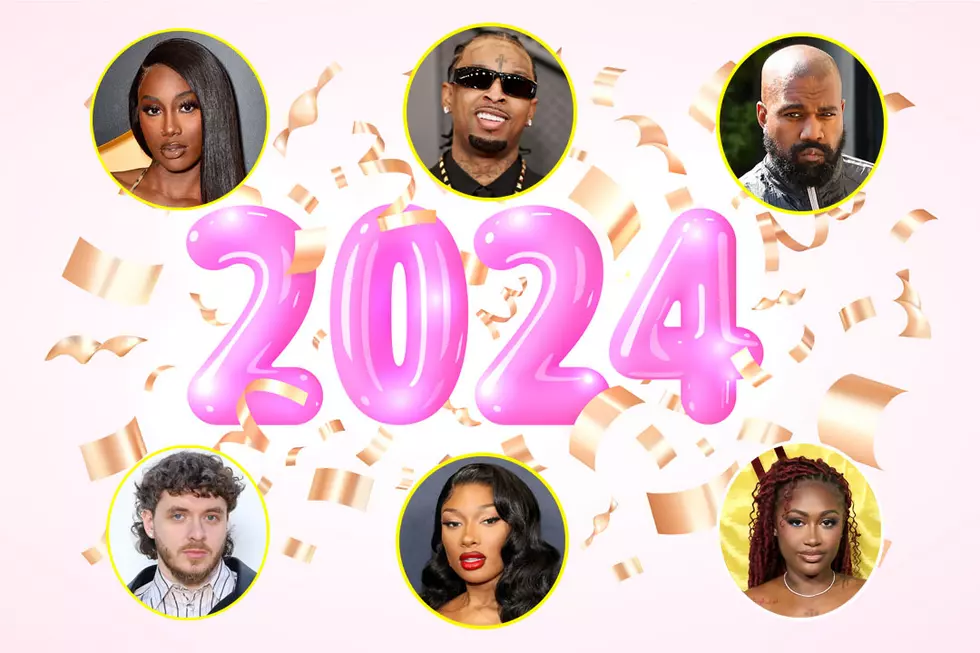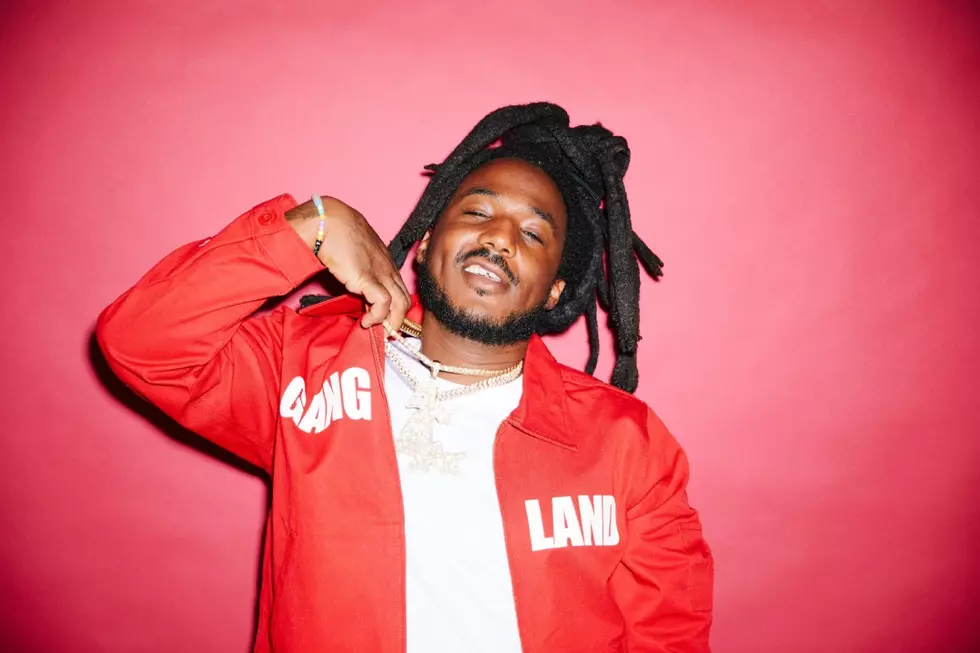
Panjabi MC Talks Making “Beware” With Jay-Z A Decade After Its Release, Working With DJ Premier
While a big name in increasingly rap-savvy India, most American hip-hop fans probably best know Panjabi MC from his international hit “Mundian To Bach Ke” (“Beware of the Boys”), to which Jay-Z famously added two verses back in 2003. While it was undoubtedly a career-shifting track, the English-born Panjabi MC has been making music for two decades now, focusing largely on integrating the genres of bhangra and hip-hop.
XXL recently caught up with the DJ/producer/rapper to see what he’s been up to in the ten years since “Beware,” what he thinks about hip-hop culture in India, and what he’s got cooking for release this year.—Katie Moore
Let’s start with some background, for readers who mostly know the Jay-Z track. You got started with music at the age of 12, right?
Yeah. I started writing raps and stuff at the age of about 12, and I managed to record by the time I was about 16. But these were just local raps along the lines of U.K. hip-hop that was happening at the time. And I didn’t really plan to rap alongside American artists or anything like that.
Could you give us a rundown of your evolution as an artist, maybe what you see as the high points of your career?
I’ve done a number of EP releases through local independent labels in the U.K., and around 2002, a couple of my songs—mainly “Mundian To Bach Ke”—started getting picked up by hip-hop DJs. I’ve been doing shows since a few years before that and I’ve just carried on releasing EPs. At the moment, I’ve got my own label, as well. I’ve kept it very independent, very underground. I’ve just released stuff from a street level. And I’m open for people to license it onto films and then hope for it to get big enough for it to go mainstream or whatever. But it’s not something I like to do myself. I don’t really make videos or anything myself. But when an album or something might get licensed in India and they might say, “Look, we want you in the video,” then I might say, “Yeah, OK, no problem.” But apart from that, I just like to release things from the bedroom.
On "Beware" And How Jay-Z Worked On The Track
Let’s talk about “Beware.” Is it true that Jay-Z heard it at a club in Switzerland and then contacted you?
Yeah, that’s correct. He contacted us and basically said that he wanted to vibe on the beat. At the time, obviously, it was an amazing situation for not only myself, but for bhangra music and Indian music generally. For bhangra music—which is the street music from England—for Jay-Z and also for people like Spike Lee to directly phone me and say, “Look, we’ve been listening to bhangra for a long time, we’re big fans.” For me, it’s an amazing time, because I didn’t even realize that outside of our community, that people were aware of the music.
I used to play a lot of non-Asian shows because my music is very much blended with hip-hop and stuff as well, but it was usually an Indian night or something. Then all of a sudden, the mainstream was like, “Look, we’ve been listening to it as well.” It was a good thing, especially when it’s real bhangra and real street music that they’ve been listening to and not something that’s been targeted toward them.
So how did it evolve from Jay-Z hearing it in a club to being on the track?
I don’t think it even took him very long to actually do the verse. He was in the studio and I missed the phone call from America; I guess it must have been early in the morning. So he left a message for me, and he kind of spat the verse into my voicemail. Just that voicemail became a classic hit amongst my friends. We acknowledged that this is going to be a groundbreaking moment for bhangra music, definitely. Again, we hadn’t imagined that these guys, the mainstream hip-hop, the biggest artists in the world, are listening to bhangra music.
On Working With Spike Lee And DJ Premier
Is it true that you’re reluctant to do things for Bollywood because the music wouldn’t be yours anymore?
Yeah, that’s right, because in Bollywood, they tend to buy the rights. They want to buy the whole rights from you. And obviously their marketing is good within India only, so then you lose the rights to release that yourself anywhere in the world. I do get offers, and I have done stuff for Bollywood, where they said, “Look, we want you to rap or produce a beat for so-and-so’s production.” And I’ll say, “OK, no problem.” But more likely, I don’t actually go out there to try and get deals or anything. A lot of my tracks do get licensed out there, though, that’s the thing.
You rapped on a “Chaiyya Chaiyya” remix, right?
That was actually for Spike Lee, for the film Inside Man. It was remixed by DJ Premier, and Spike asked me to rap on the track. The thing with working with films and getting commissioned to do music is that people tend to have certain specifications for what they require, and I find it quite difficult to make music to order, so to speak. When the music, the vibe, comes, I’ll just produce it at the time. That’s more how I do it.
How was it working with Premier?
I mean, he’s definitely one of my idols. To me, Premier, Dr. Dre, people like that, they are the pioneers of the sound of hip-hop. Definitely it was a great honor to be in the same studio as him and to work with him. It was amazing.
You have a new album coming out this year, right? Can you tell us a little about it?
I’ve got an album coming out toward the end of the summer called 56 Districts. So far, I’ve managed to get Warren G on there and a couple of other rappers. And on this album, I’m doing a lot more rapping myself, as well. There are a lot of songs on there that are geared more toward the mainstream dance floor, because I do so many shows now in Germany and Russia and all around Europe, and non-Asian shows even in England. I get so many bookings where they just want to hear hip-hop with maybe a little twist of the Asian, and they want to see amazing ways of integrating that in there. Even the Indian beats I’ve used on the album, they’re not just specifically Punjabi beats now. I’ve gone a little bit more into South India and Mumbai, Bollywood beats and stuff like that, gone a little bit thicker on the beat.
On Hip-Hop In India
Can you talk about hip-hop culture in India? What do you think is coming next?
With hip-hop, the thing is that in the past, rap music and bhangra music have never really mixed. So if you go to a bhangra show and start rapping, you’re going to get a really negative reaction. And I guess if you go to a hip-hop show and start singing bhangra music , you’re gonna kind of get a negative reaction as well. So in the past, they never really mixed too well.
Recently there have been a lot kids out there who have come out with Punjabi rap, and that’s kinda kicked off now. And it’s specifically Punjabi—it’s not Hindi rap or anything—it’s the Punjabi one that’s kicked off the most. The thing is that it’s been around for a while, but definitely now in India, it’s a big thing. So maybe in the future, that might cross back into America or the U.K. to say, “Look, you taught us, now we’re teaching you” kind of thing. You never know.
Are there artists that you think are especially noteworthy in India?
At the moment, the biggest star is this guy called Honey Singh. He’s a rapper/producer, and has brought Punjabi rap into the forefront. And the original creator of Punjabi rap is a guy called Bohemia, but he didn’t do so well because he’s too raw. But he’s definitely the originator and the pioneer of the Punjabi rap thing. And before that, there was only myself rapping. And I brought Punjabi rapping into my lyrics, as well. But I guess it was not so big.
I did do a song called “Mirza Part 2”, and that’s the only song you can play on a bhangra dance floor and the crowd will rap, even though it’s an English rap. To me, that was even bigger than the mainstream hearing “Mundian To Bach Ke” or hearing bhangra music. It was bigger that the Asian crowd was now listening to rap. Because I remember one day a couple weeks after that song was released, going to a show, and hearing some DJ play it, and hearing the crowd rapping my rap. That was one of the biggest moments, biggest milestones to me was to hear an Indian crowd rapping that rap. And I thought to myself, “You know what? If I’m seeing this now, crossing bhangra to the mainstream, that’s easy.” [Laughs]
More From XXL









